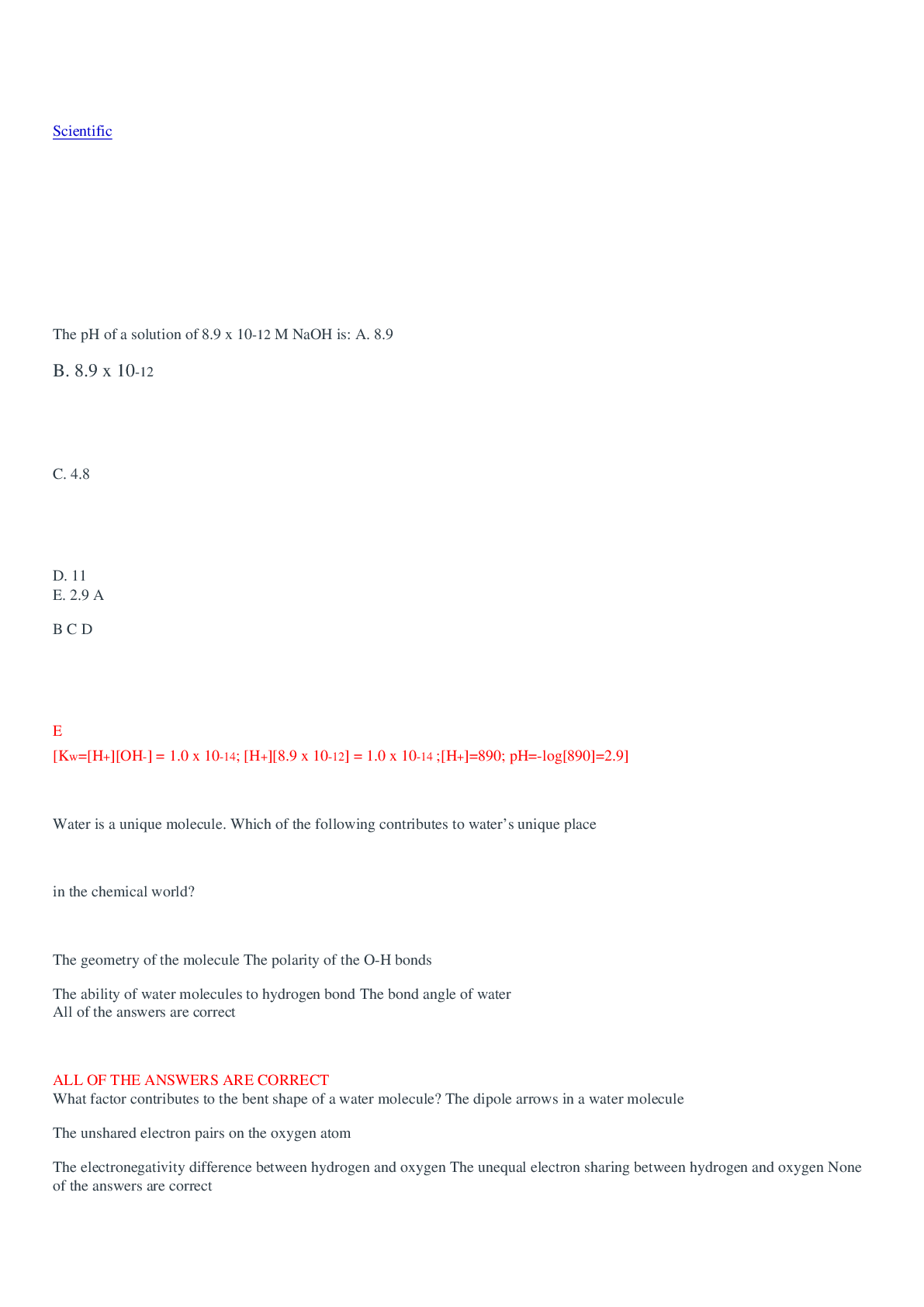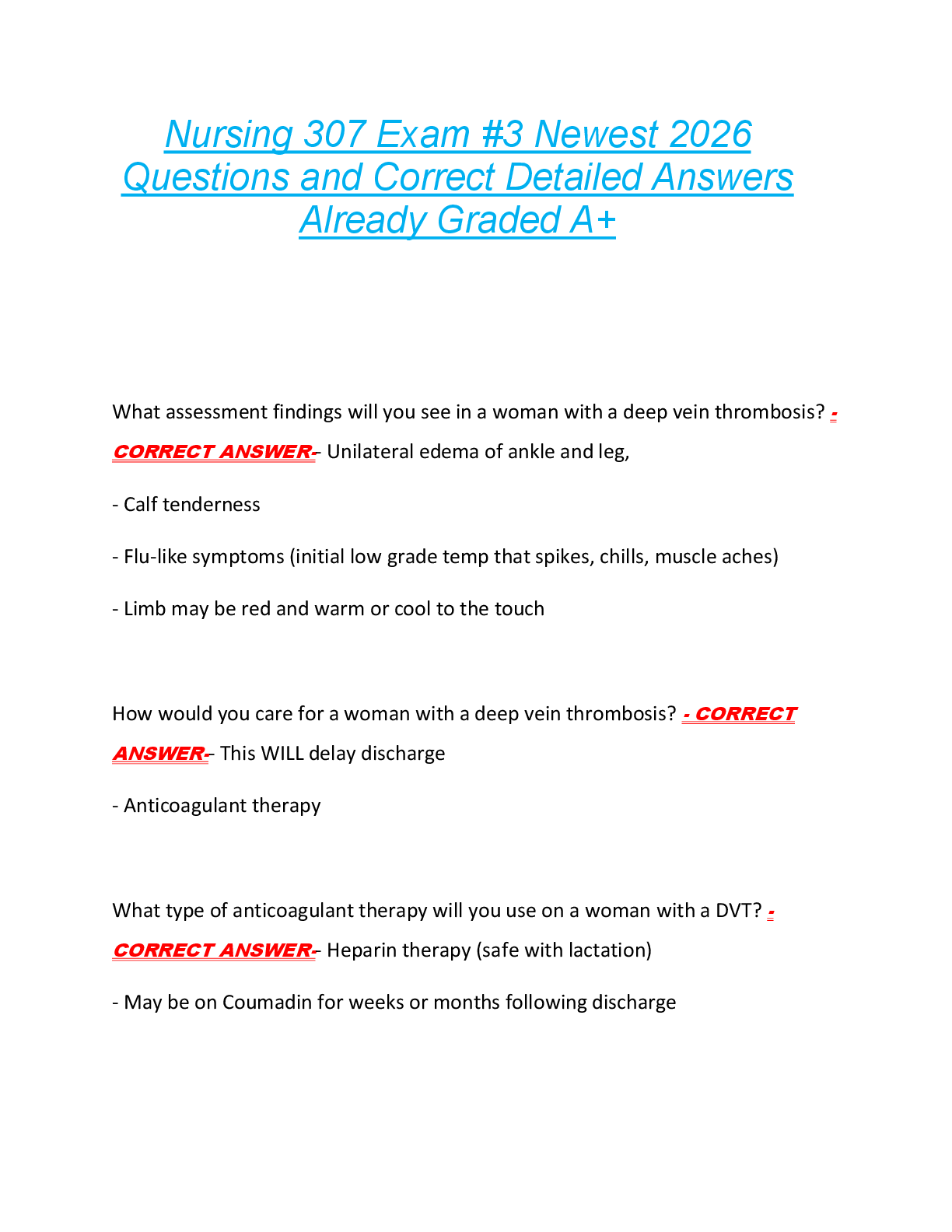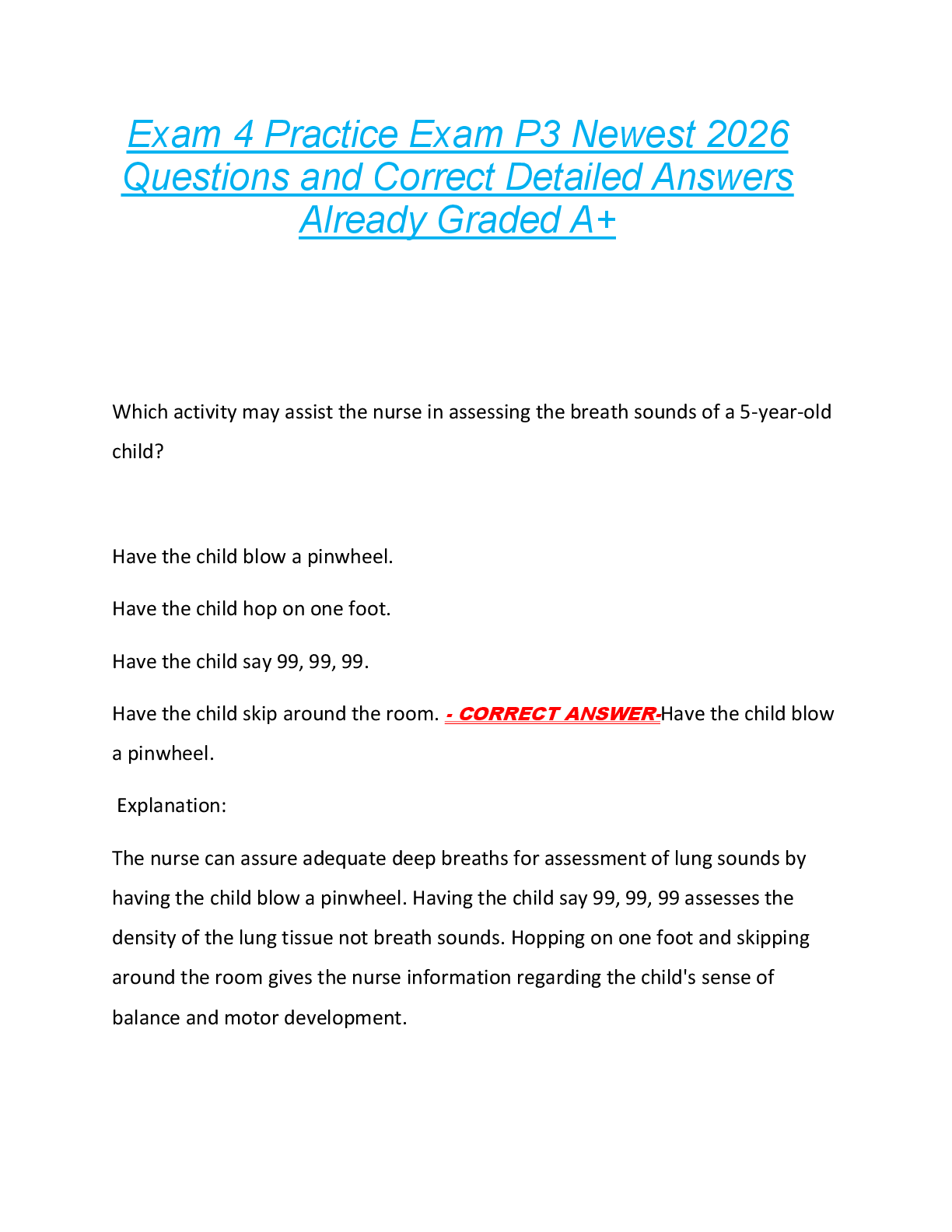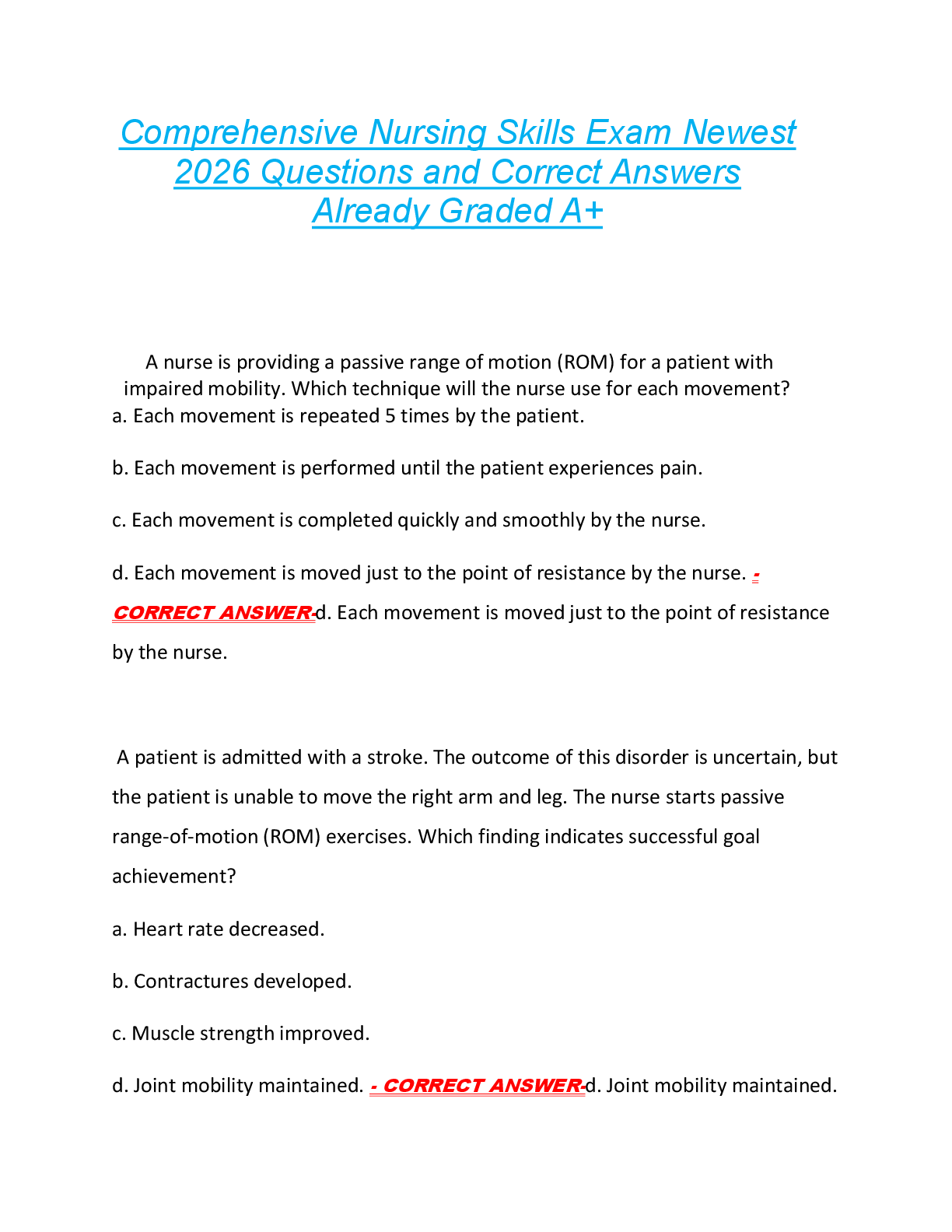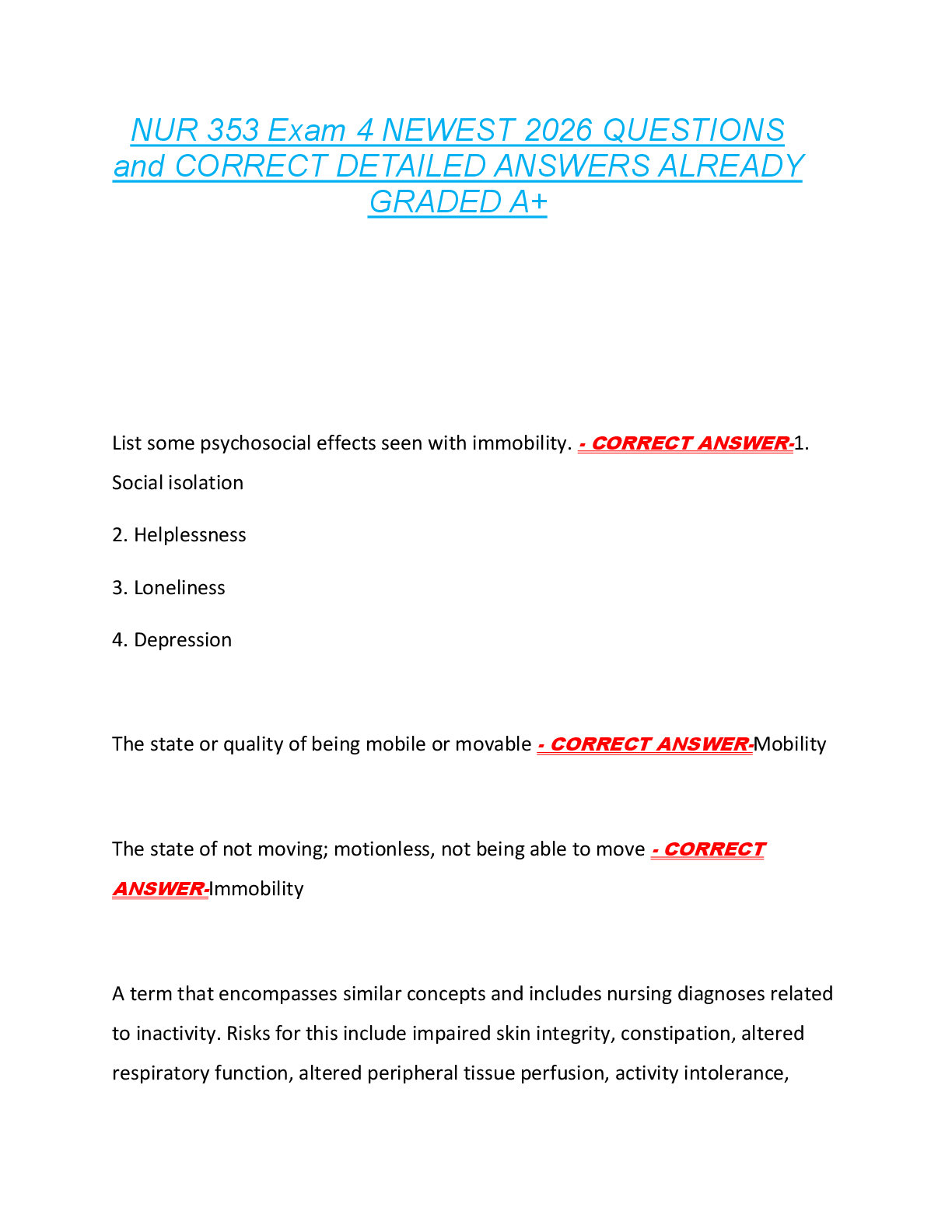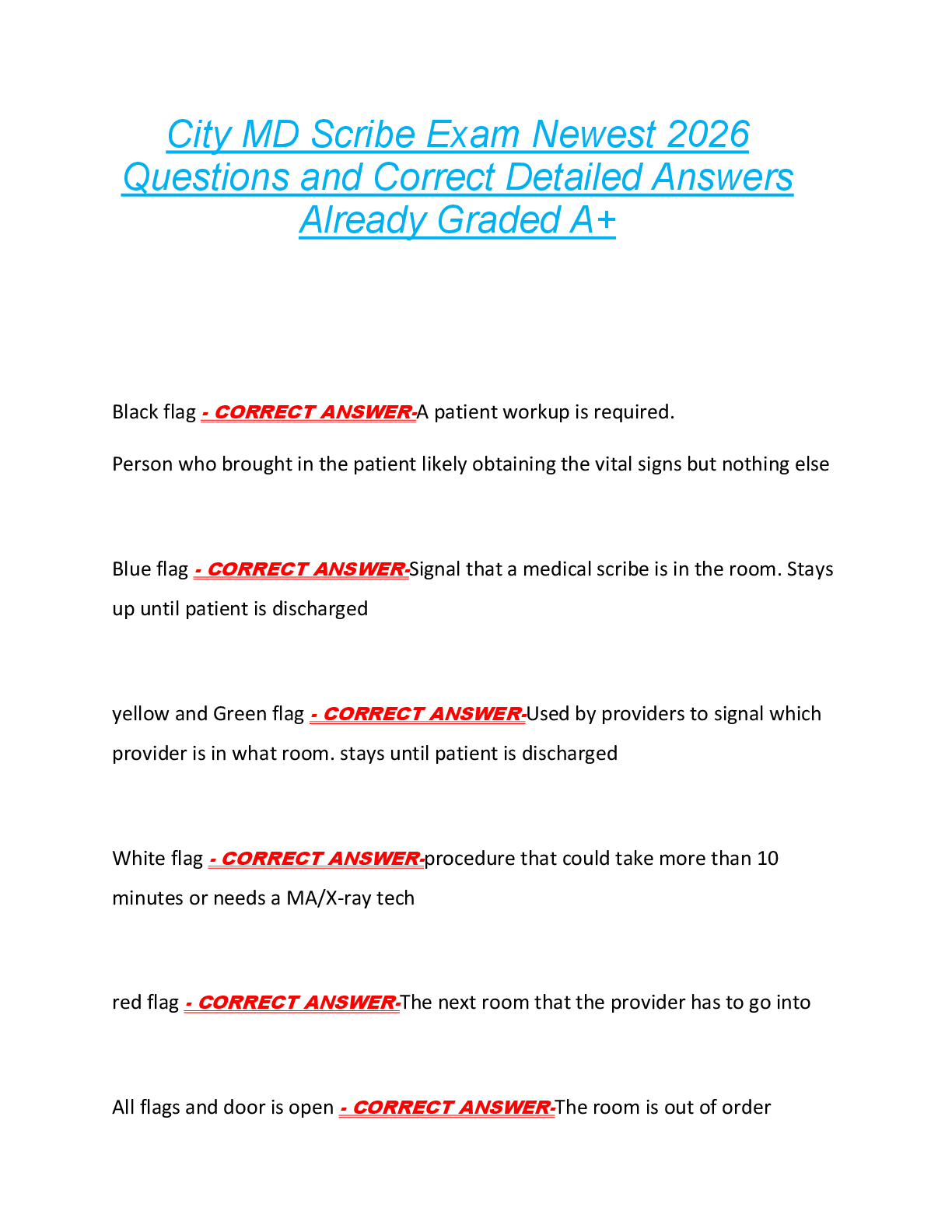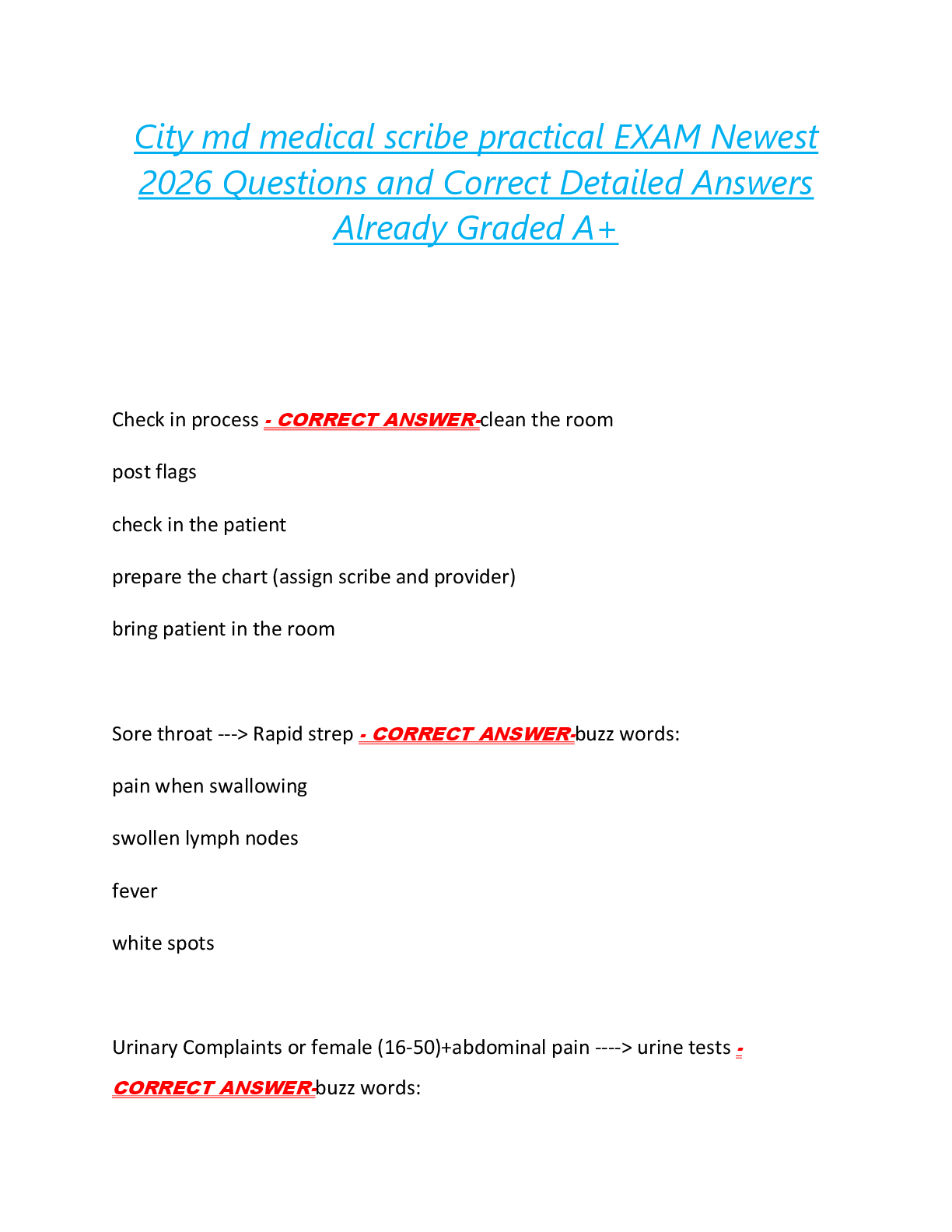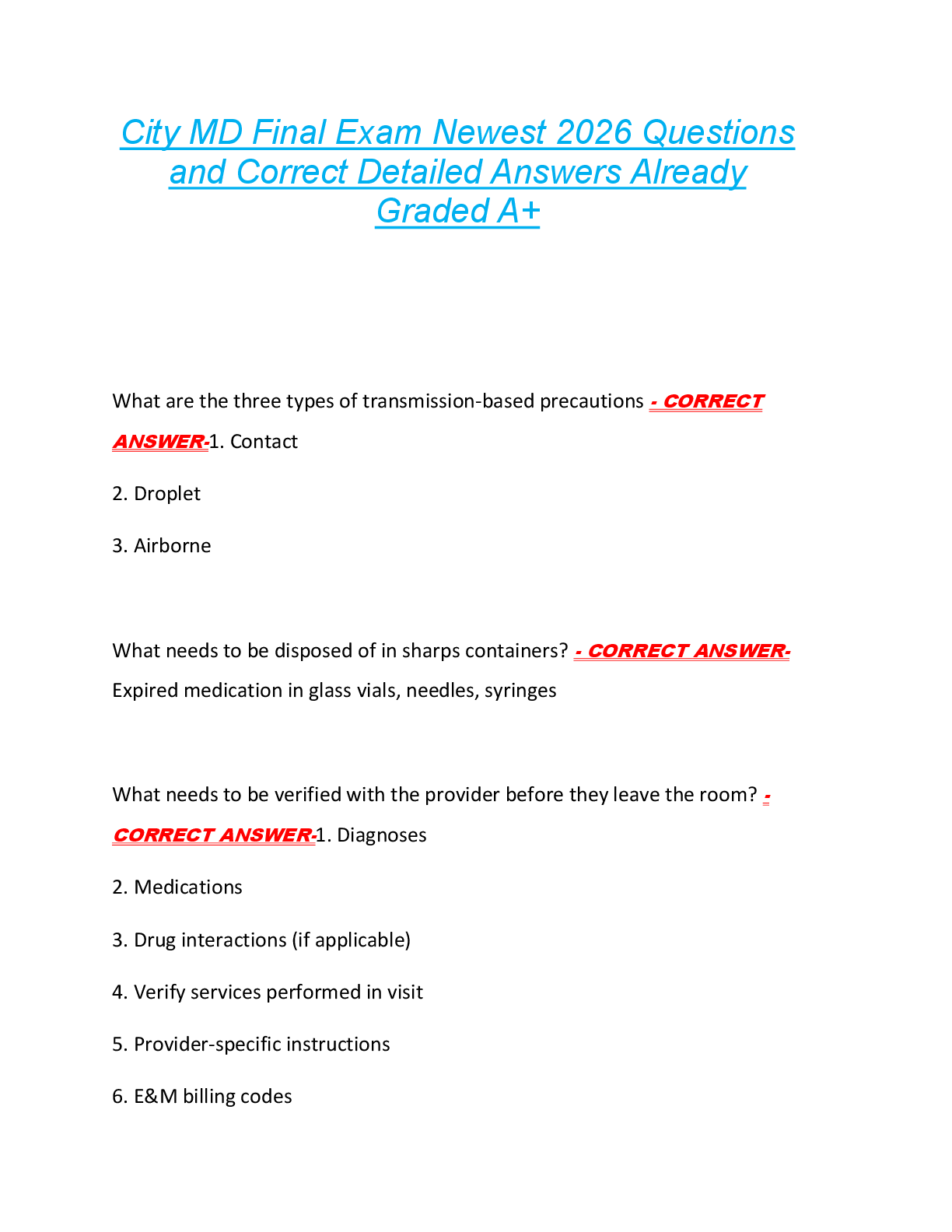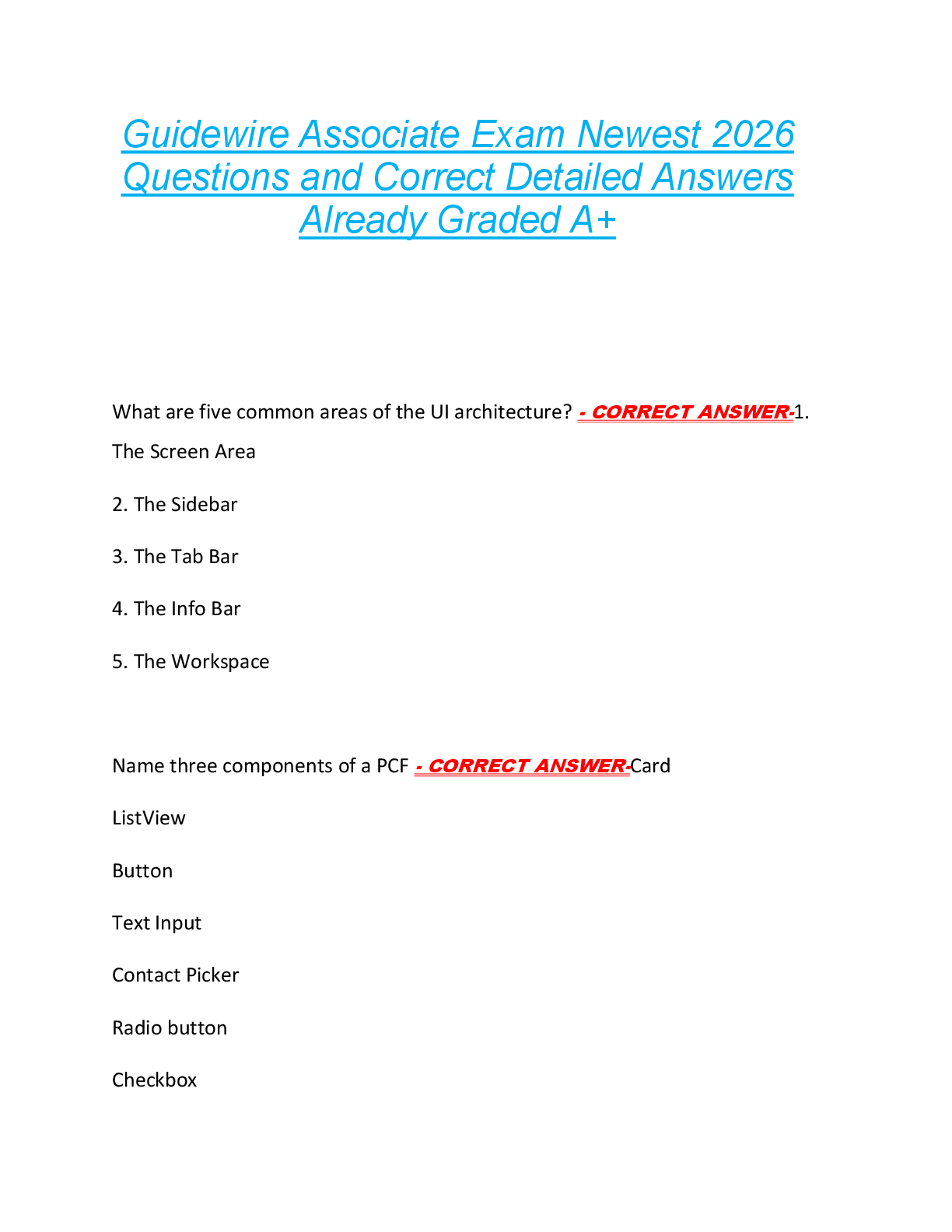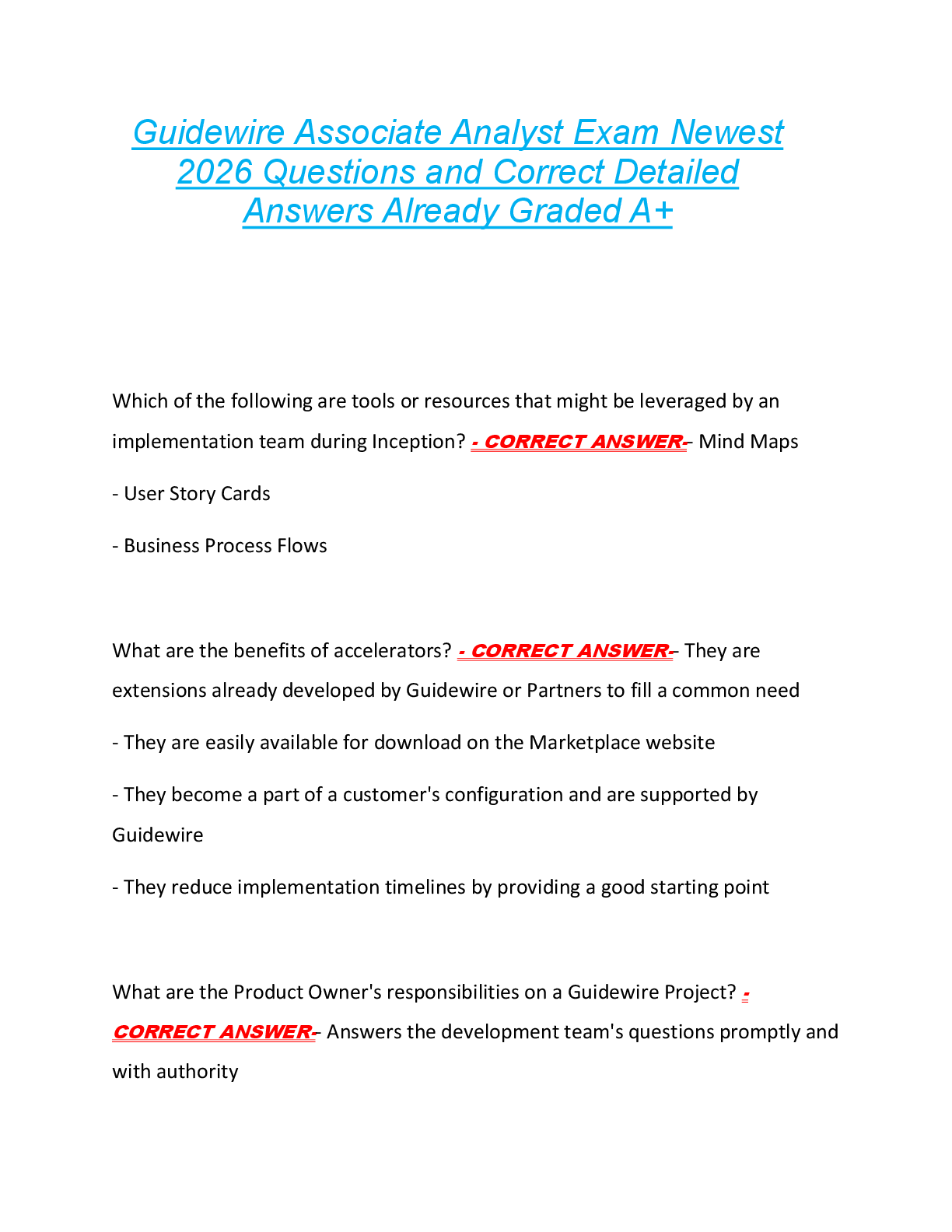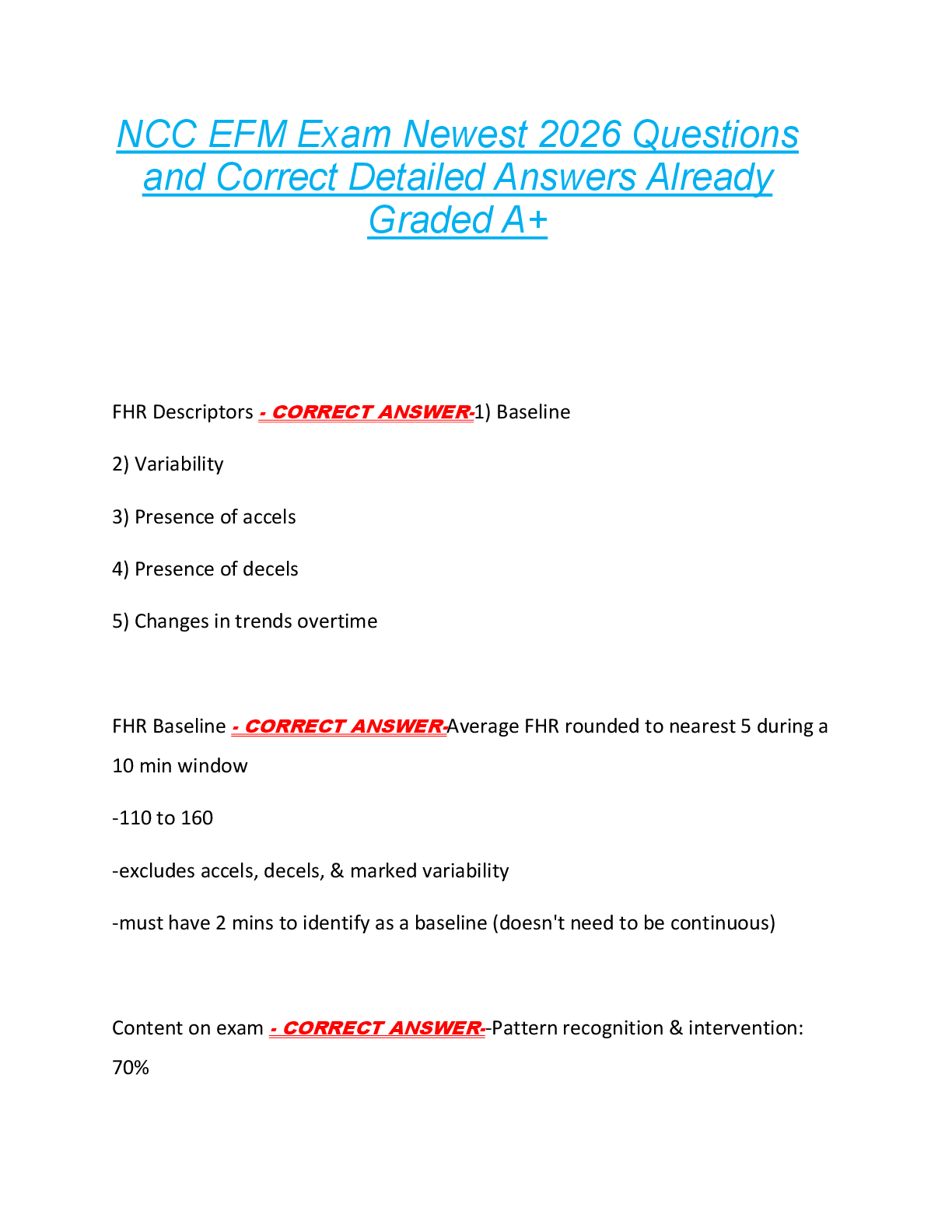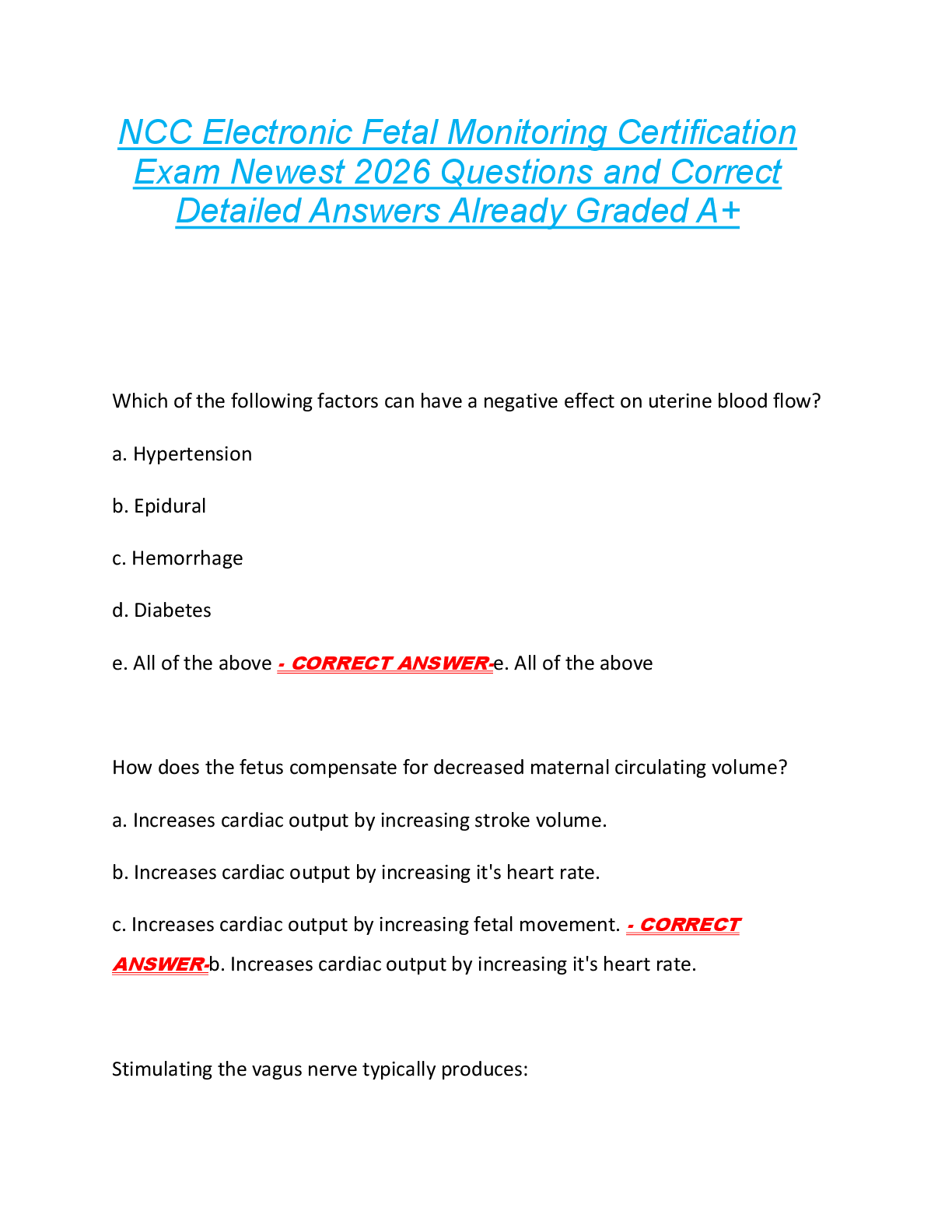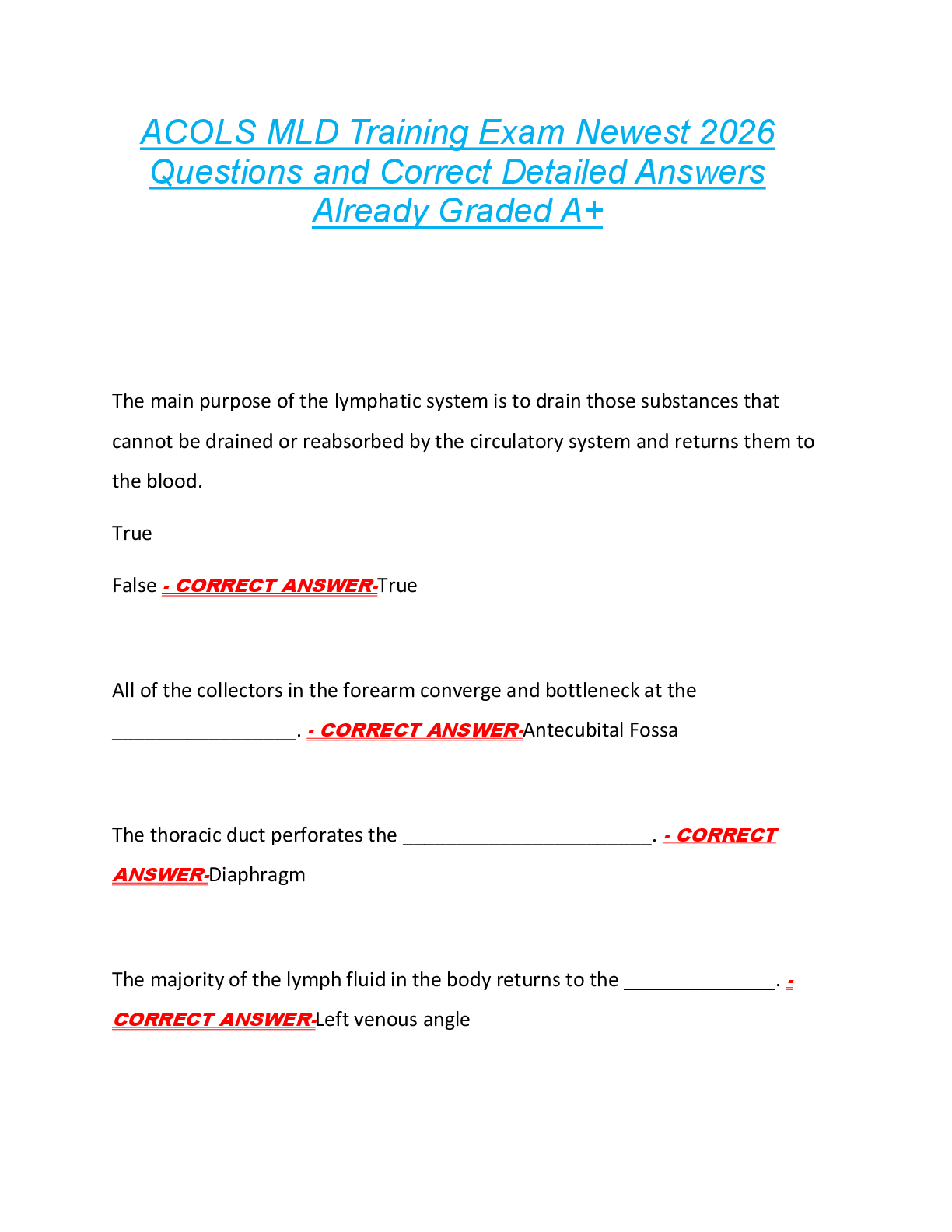Health Care > EXAM > WGU-BSN Comprehensive Study Guide (All)
WGU-BSN Comprehensive Study Guide
Document Content and Description Below
Healthy People 2020 - ANSWER Attain high-quality, longer lives free of preventable disease, disability, injury, and premature death. Achieve health equity, eliminate disparities, and improve the heal ... th of all groups. Create social and physical environments that promote good health for all. Promote quality of life, healthy development, and healthy behaviors across all life stages. Healthy People 2020 objectives - ANSWER the fourth set of health goals and objectives for the U.S. that defines the nation's health agenda and guides its health policy Quality Improvement (QI) - ANSWER A continuous process that identifies problems in health-care delivery, examines solutions to those problems, and regularly monitors the solutions for improvement. QSEN - ANSWER stands for Quality and Safety Education for Nurses, a project for preparing future nurses with the knowledge, skills, and attitudes (KSAs) necessary to continuously improve the quality and safety of the health care systems within which they work Grand Nursing Theories - ANSWER have broadest scope and present general concepts. Not designed for empirical testing. Intended to be pertinent to all instances of nursing. Consist of conceptual frameworks defining broad perspectives. Theory of Goal Attainment - ANSWER Imogene King Theory of Goal Attainment - ANSWER A nurse wants to speak to a teenage mother about birth control but, the teen is very stressed out, almost ran out of money, can't afford the formula, so clearly the formula is the main issue, the nurse knows that she can educate her on the birth control AFTER she figures out her formula problem. Tackle one problem at a time. This is an example of what theory? Four concepts common in nursing theory that influence and determine nursing practice - ANSWER The person( patient) The environment Health Nursing (goals, roles, functions) Nightingale (1860) - ANSWER to facilitate the body's reparative process by manipulating the patient's environment Paplau 1952 - ANSWER Interpersonal relationships model- proper development of a pt.'s personality is important to improve their personal and community living. Henderson (1955) - ANSWER work interdependently with other health care workers, assisting patient in gaining independence as quickly as possible; help patient gain lacking strength Abdellah (1960) - ANSWER This theory focus on delivering nursing care for the whole person to meet the physical, emotional, intellectual, social, and spiritual needs of the client and family. Orlando 1962 - ANSWER the client is an individual; with a need; that, when met, diminishes distress, increases adequacy, or enhances well-being. Johnson's Theory 1968 - ANSWER how the client adapts to illness and how actual or potential stress can affect the ability to adapt. The goal of nursing to reduce stress so that; the client can move more easily through recovery. Rogers 1970 - ANSWER to maintain and promote health, prevent illness, and care for and rehabilitate ill and disabled client through "humanistic science of nursing" Orem (1971) - ANSWER to care for and help clients attain total self-care King (1971) - ANSWER - goals attainment theory- the nurse and pt. mutually set goals and agree on ways to reach goals. Neuman (1972) - ANSWER assist individuals, families, and groups in attaining and maintaining maximal level of total wellness by purposeful interventions Roy 1979 - ANSWER to assess demands on a client and help the client adapt. Watson's Theory 1979 - ANSWER Watson's philosophy of caring 1979 attempts to define the outcome of nursing activity in regard to the; humanistic aspects of life. Need theorists - ANSWER Abdellah Henderson Orem Interaction Theorists - ANSWER King Orlando Peterson and Zderad Paplau Travelbee Wiedenbach Outcome theorists - ANSWER Johnson Levine Rogers Roy Focus of needs theories - ANSWER These theories are based around helping individuals to fulfill their physical and mental needs. Needs theories have been criticized for relying too much on the medical model of health and placing the patient in an overtly dependent position. Interaction theories focus - ANSWER These theories revolve around the relationships nurses form with patients. Such theories have been criticized for largely ignoring the medical model of health and not attending to basic physical needs. outcome theories focus - ANSWER These portray the nurse as the changing force, who enables individuals to adapt to or cope with ill health (Roy 1980). Outcome theories have been criticized as too abstract and difficult to implement in practice (Aggleton and Chalmers 1988). rapid acting insulin - ANSWER Lispro (Humalog) Aspart (Novolog) Glulisine (Apidra) Intermediate acting insulin - ANSWER NPH (Humulin N, Novolin N) Long acting insulin - ANSWER glargine (Lantus) detemir (Levemir) Short acting insulin onset - ANSWER 5 to 15 minutes, peak effect in 1 to 2 hours and duration of action that lasts 4-6 hours. intermediate acting insulin onset - ANSWER peak effect of 4 to 6 hours, and duration of action of more than 12 hours Long acting insulin onset - ANSWER 12-24 hours for insulin detemir and 24 hours for insulin glargine. Metformin (Glucophage) - ANSWER decrease how much sugar your intestines absorb, make your body more sensitive to insulin, and help your muscles absorb glucose. How to take metformin - ANSWER usually taken twice a day with breakfast and evening meal. (extended release only once daily) Sulfonylureas: Glimepiride (Amaryl) [Show More]
Last updated: 3 years ago
Preview 1 out of 11 pages

Buy this document to get the full access instantly
Instant Download Access after purchase
Buy NowInstant download
We Accept:

Reviews( 0 )
$8.00
Can't find what you want? Try our AI powered Search
Document information
Connected school, study & course
About the document
Uploaded On
Oct 27, 2022
Number of pages
11
Written in
All
Additional information
This document has been written for:
Uploaded
Oct 27, 2022
Downloads
0
Views
57












